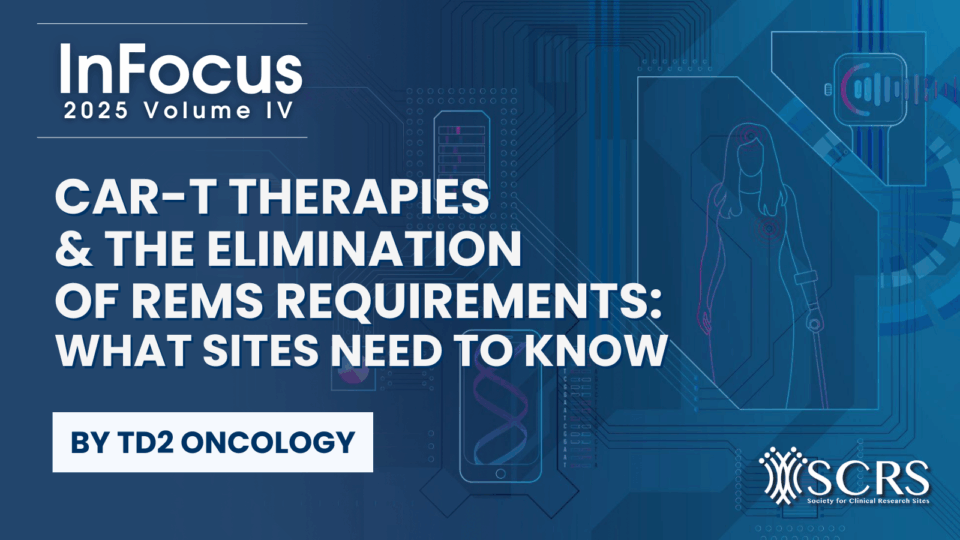Uncovering Opportunities for Increased Efficiency In Patient Recruitment and Engagement, Financial Processes, and Workload Burden for Clinical Research Sites

By Joe Gough, MA, Sr. Solutions Specialist, Greenphire
Although rewarding, conducting clinical research can create a tremendous administrative burden for site staff. Now more than ever, these pain points are being felt much more acutely.
Challenges, including rising costs, were outlined by the SCRS earlier this year in its Open Letter to Sponsor and CRO colleagues regarding workforce retention and inflationary pressures affecting clinical research sites.
Measuring Site Perspectives to Streamline Operations
This summer, Greenphire conducted a market research survey from sites to examine areas of operational inefficiency, understand site perspectives, and to validate solution enhancement opportunities. The survey questions probed participant recruitment; patient engagement; participant diversity, taxable participant payment implications, budget creation, negotiation, and invoicing expediency, and Sponsor/CRO relationships with sites. These functions represent areas of opportunity for vendors as well as Sponsors, CROs and other partners to improve processes and challenges sites are facing right now.
More than 500 sites responded to the survey. This article highlights a subset of key findings and trends that impact the clinical trial workforce and operational challenges in a “post-pandemic world and economy”.
The survey was initiated by email and was global, with 75% of respondents from the United States and the others from Europe and other regions. The sites represented viewpoints from academia, professional research sites, hospitals, and nonprofits. The majority of responders were study coordinators.
Core Issues: Study Volume Level and Site Staff Retention
Greenphire sought to understand the “state of the state” from our site user base.
The SCRS Task Force letter recognized the “Great Resignation,” driven in part by the strain placed on healthcare employees due to COVID-19. We discovered that 63% of sites noted that hiring and retaining employees has been a challenge this year. Additionally, when asked if their study volume was “back to pre-pandemic levels,” 68% of sites said “Yes”. As such, many sites are indeed being asked to “do more with less”.
For those sites whose study volume was not back to pre-pandemic levels, 25% attributed this decrease to a lack of employees.
These data confirm that “time” is perhaps the most valuable resource right now for operations. It’s critical that trial management solutions provided to site staff are easy to use and fit for purpose to alleviate unnecessary administrative work.
Staff Time for Participant Engagement: More Important Than Ever
Simply put, without patients, there wouldn’t be clinical trials.
Yet with more narrow inclusion criteria and the increase in “personalized medicine” recruitment is often more challenging today. Having maximum time available for recruitment is critical. Therefore, reducing the workload for site staff by improving processes is a continuous goal.
In our survey, 84% of respondents indicated they believe technology can be helpful and positively impact efficiency and support recruitment and retention. Survey results noted that as a form of “optimizing participant engagement”, providing adequate compensation (expense reimbursement and study milestone payments) was the leading method noted by 75% of sites. Additionally, with respect to having available time, 49% of sites indicated that “arranging for transportation and managing the logistics of patients coming for study visits takes away from patient care and other clinical research tasks.”
Recruitment and patient engagement are paramount, yet 43% of sites in the survey indicated lower-than-average enrollment this past year. Open-ended survey responses most frequently indicated lower enrollment was attributed to the lingering effects of COVID-19. One responder commented, “participants are still hesitant to venture out because of COVID-19 or go to a health care facility (especially elderly or immunocompromised).” Other common responses impacting enrollment included: gas prices and economic challenges in general; increasingly stringent study inclusion criteria; and participant compensation and expense reimbursement inadequate relative to the increasing cost of living.
However, study protocols and trial operations have adapted significantly recently, especially out of necessity due to COVID-19. For example, hybrid technology has slowly been added to complement in-person patient visits for many sites. 37% of sites reported that their protocols require more activities conducted at participants’ homes. In the remote trial context, sites reported that activities such as reimbursing patients remotely aren’t that much of a challenge, but conducting certain study visits and obtaining testing and lab specimens remains difficult for many sites to administer.
Financial Operations and Opportunities: Budget Creation, Negotiation, and Invoicing
One of the most revealing and important feedback areas of the Greenphire Summer Survey focused on site financial processes and procedures associated with budget creation, negotiation, and invoicing.
Beginning with study start-up, only 25% of site respondents indicated their budget negotiation process was “very efficient” (as the time to CTA execution is a critical performance measure for sites.)
Most common challenges noted in the survey, again, related back to “time”. Sponsor and CRO “timely responsiveness” to sites along with “more frequent and better communication” were cited most often as the “key area” for needed improvement. Offering more “user-friendly” budget templates was also mentioned frequently. A uniform response across seemingly all sites (also noted by the SCRS Task Force Letter) was for Sponsors to recognize the “increased administrative trial costs for sites due to inflation”. This is a challenging financial reality in the current economy for many sites to remain sustainable.
For survey questions related to invoicing payments, sites highlighted the need for technology that streamlines their financial workflows. 85% of sites prefer “to work with a Sponsor or CRO who invests in technology that alleviates challenges with invoice creation, distribution, reconciliation.” This is a seven-percentage point increase from a survey conducted jointly by Greenphire and the SCRS in 2019. In addition to invoicing format improvements, expediency is critical! 82% of sites agreed that delays in site payments have a negative impact on site operations.
So, what can be done today? We asked sites what was “the most important activity” a Sponsor/CRO could do to foster enhanced relationships with sites in 2022, and the number one answer was to “streamline site payments and invoicing” processes. Fully paying start-up costs up front was also a leading area mentioned along with paying invoices promptly (e.g., within 30 days if possible).
A Call to Action: Sponsor and CRO Support for Sites
As a provider of financial and logistical solutions, Greenphire is frequently conducting focus groups and issues surveys to understand client preferences for technology and to explore ways we can partner to improve the sustainability of sites and all stakeholders in clinical research.
Science and medical innovation are at an all-time high, and conducting clinical research has never been as important (as evidenced by the COVID-19 pandemic). However, macroeconomic pressures such as inflationary costs, as well as site staff turnover and patient hesitancy to participate in clinical research are areas we must address together. We encourage the industry (especially Sponsors and CROs) to understand and invest in the “site experience” and to work together to ensure clinical research staff have access to reliable tools and processes to optimize performance in the management of the important work we all do collectively.
About the Author
Joe Gough, MA, is a Sr. Solutions Specialist for Greenphire supporting ClinCard for Universities, Hospitals and Research Sites in the US and globally. Mr. Gough previously worked in the Department of Medicine at the Medical University of South Carolina and the VA Cooperative Studies Program, Department of Veterans Affairs Headquarters and is an SCRS Member. Greenphire is a financial technology company supporting global financial lifecycle management for clinical trials.




